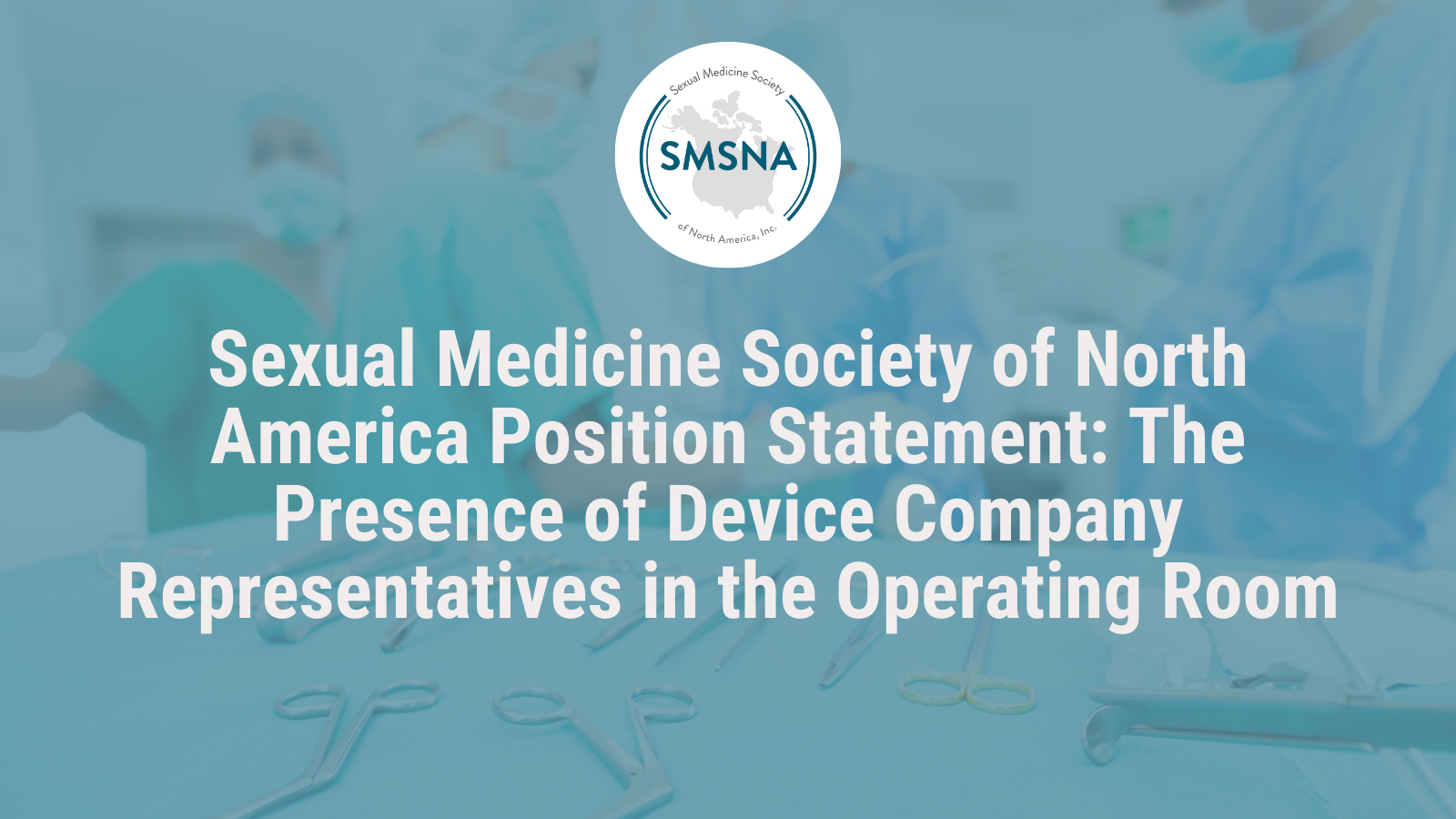Medical and surgical devices provide many useful benefits for patients. Penile prosthetics, urethral slings, and artificial urinary sphincters are common examples of medical devices in the field of operative sexual medicine. The Sexual Medicine Society of North America (SMSNA) believes that patient safety should be a primary outcome of surgery. It is the position of the SMSNA that the presence of medical device representatives in the operating room allows for better patient outcomes and safer surgery.
In general, medical device representatives have several significant roles in the peri-operative period to help ensure optimal outcomes:
- Providing technical support in accordance with government regulations and health care facility policy.
- Conducting formal and informal in-service programs for members of the surgical team to provide education related to their devices.
- Providing instruction on device preparation to the surgical team perioperatively.
- Educating sterile processing technicians on equipment processing.
- Educating surgeons on specific device properties to improve surgical outcomes.
In addition to these roles, medical device representatives frequently perform several essential roles during the operative procedure itself:
- Direct observation and feedback of surgical team members to ensure appropriate device preparation
- Troubleshooting key portions of device preparation and placement
- Availability for intra-operative questions on device characteristics and features
- Notification of relevant key updates which may impact select aspects of surgical procedures
The SMSNA feels that it is simply unrealistic to suggest that these critical roles may be performed in any setting other than the procedure itself. Medical devices are increasingly complex and frequently undergo important mechanical and technological updates. Additionally, hospital and surgical staffing systems are such that it is increasingly the norm where surgical teams are composed of float pools, where individuals may have never previously been involved with a particular case. Even in cases where the optimal team starts a procedure, often periodic breaks have become mandatory, which results in temporary replacement of team members during the surgical procedure. In many cases, this results inthe temporary addition of new team members, which often are inexperienced with a given procedure. It is impractical to suggest that the surgeon her/himself is able to constantly monitor the activities of all support team members at all times.
Policies from esteemed organizations such as Mayo Clinic and the Association of Operating Room Nurses already have robust policies in place. These policies restrict medical device representatives such that they are not allowed to touch patients or medical devices directly, but are only able to educate, observe, and inform operating room staff where appropriate. Other operating room staff such as nurses and surgical technicians continue in their defined and integral roles; and surgeons continue to serve as the primary decision makers as to whether a medical device representative should or should not be present during cases.
Although it does not apply to all surgical cases, medical device representatives are able to provide essential information during key portions of many procedures and therefore remain a critical member of the overall team. Indeed, there are several, highly-experienced SMSNA surgeons who will not start a medical device case unless the medical device representative is present in the room.
In summary, the SMSNA strongly advocates for the presence of appropriately trained medical device representatives in the operating room. Patients and health care professionals alike benefit from the presence of these experts when indicated. The technical acumen that medical device representatives provide can increase efficiency, improve surgical outcomes, and maximize patient safety.


